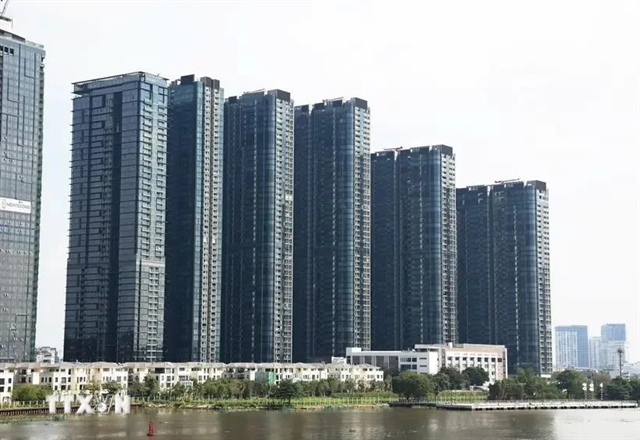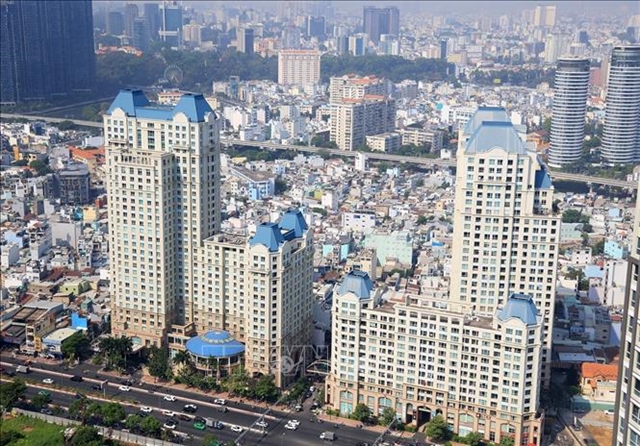 Economy
Economy

 |
| An apartment complex in Bình Thạnh District, HCM City. VNA/VNS Photo |
HÀ NỘI Việt Nam's property sector remains vulnerable to money laundering with the risks high in the sector, according to the latest report by the State Bank of Vietnam (SBV).
The report said the property sector, which attracts major investment funds, records numerous transactions daily, often conducted via bank transfers, sometimes by cash, without going through property exchanges approved by the authorities. This has resulted in difficulties in verifying and tracing the origin of funds.
According to the central bank, in many cases tried during the 2018-22 period most assets seized by the authorities were properties. A common practice by criminals was transferring ownership to family members or paying for their purchases.
As of now, transactions by developers and businesses are generally settled through banks, without having to do through an exchange. Personal transactions, which make up a majority of all transactions, can be settled by cash, or in some rare cases gold.
These factors have turned the sector into a fertile ground for money laundering activities.
The number of property exchanges across the country has not recovered since the COVID-19 pandemic. During the worst of COVID, 80 per cent of all Việt Nam's exchanges were forced to close down. Struggling to adapt and recover, the number has bounced back to over 1,100 in the latest data.
While the number of suspicious transactions remains low in comparison to the sector's size, professionals including notaries and lawyers, or in extreme cases even credit institutions, have been found involved in such transactions.
It has prompted the Government to implement stricter rules to oversee property brokerage with agents now required to take training and pass exams for a licence to practise their profession. A recent national report said since 2008, nearly 33,000 agents have been granted new licences.
The central bank attributed the sector's vulnerability to a lack of legal frameworks and guidelines to combat illegal activities and the potentially massive profit that attracts sophisticated criminals.
Overseeing property agents remained difficult, as a significant portion of agents possess limited market knowledge, and a large number of freelance agents operate without a licence. The sector lacks stability and transparency, allowing tycoons to engage in stock manipulating practices, create bubbles, and disrupt the sector's development.
The most glaring weakness is the law's inability to see the difference between people with genuine housing needs and market speculators and hoarders, who typically incurred multiple transactions within a short period of time.
Oversight of investment flowing in the sector has been inadequate, resulting in potential risks in developers' credit lending, bond and stock issuance.
According to data from the Anti-Money Laundering Department under the SBV, between 2018 and 2022, the department received six internal audit reports, 16 internal regulations on anti-money laundering, and one suspicious transaction report from a company offering real estate brokerage, exchange, and management consulting services, a meagre number compared to the size of the sector. VNS




